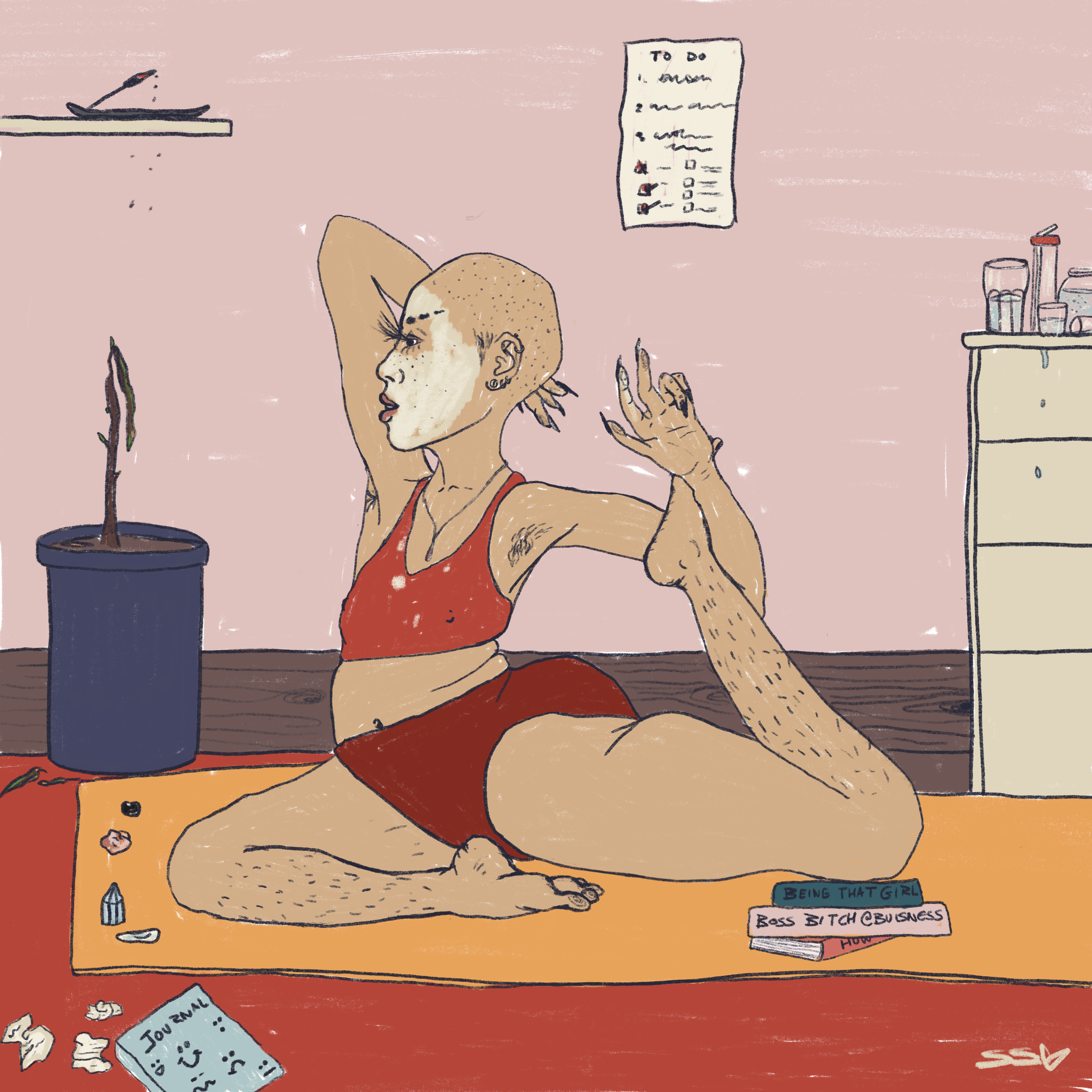By Cameron Rhodes (he/him)
Self-help media has been around for a very long time – there is evidence of it dating back to Ancient Egypt. Self-help methods are usually meant to offer people ways to better themselves and carve a new path into their future; but in the 21st century, people have begun to see the negative effects, as this message of striving for greatness, and a comfortable or wealthy life, has turned sour. This cult of self-improvement has become so twisted that people emphasise wealth over health, when it should definitely be the other way round. The majority of toxic self-improvement media is based on wealth, although there is also toxic media involving changing your personality and your views on relationships.
The mindset that you must wake up at four in the morning and work every hour of the day is not sustainable. Recently, I have been seeing graphics on Instagram that explain why waking up so early is positive, statements like, being awake at 4:30 gives you a “mental edge” over others, and an extra two hours a day. But in reality it’s not two more productive hours, it’s two hours you could have been resting your mind and body. The worst part about these posts is that they’ll usually have a punchy graphic or a clip art image, luring people in, making the self-help content seem vibrant and lively: ironic considering another example I saw, a man climbing a mountain captioned, “No one is coming to save you”. Self-improvement guides have seemingly changed very quickly from their original goals, where comfort was emphasised, becoming much more self-destructive as a result. Although young children won’t be reading these posts, I can imagine those entering high school doing so, and having this identity change, where their previously healthy mindset to do what they love turns into something that does much more damage than good.
YouTube videos can be the worst types of self-help content. They usually include a man in a suit listing off things that can make you ‘better’, like how having uncomfortable conversations will help you get richer, for example. The root of the problem with self help media is that these videos and posts and magazines aren’t just trying to change your habits, they’re trying to change your whole identity and the way you act as a person; this focus on wealth as the end goal to self improvement can warp people into becoming a mindless machine. There is this weird focus on not only improving your physical traits, but improving your personality, and changing your emotional output. I saw another post that presented this message, but it concluded with ‘be yourself’. I can understand wanting to better yourself, but describing a personality as something that needs to be improved has very negative connotations – it does not promote mental positivity. I believe that social media is the most potent media format that forces change. The option for absolutely anyone to post “motivational” guides and force their ideals on people is dangerous; influencers can easily portray a culture of talking about stocks, real estate and businesses as the ideal one, and demonise actually having a normal social life, one where stocks come after friends.
There must be some benefits to all of this work and hardship that these “thinkfluencers” are suggesting, right? The only benefit I can see in this constant cycle of work is the material wealth, but is it really worth earning all of this money, to not even be able to spend time spending anyway? This raises the issue of identity again, as it is impossible to actually become your own person if life is constantly spent working to acquire money – as a result, I see no joy in following the majority of these tips. While there are a lot of harmless motivational and self-help books and posts from people who are experts in the field, it does become hard to distinguish what will actually be the most helpful thing for the audience of this media.
Although there is good intent behind a lot of self-help and self-improvement methods, there is too much focus on sacrificing important parts of yourself in favour of false happiness in the form of material wealth. Happiness should be the most important goal of self-improvement; as soon as it deviates and joy is sacrificed, the whole purpose disappears. There is a difference between very positive change and negative change in identity, and as multiple motivational accounts pop up, these lines become blurred, making it harder to truly discern media that will either strengthen or deteriorate your personality. Being in a state of constant change can be good, as it provides opportunities to create and learn new things, but forcing change just because someone told you to can lead to terrible outcomes.
Bibliography

